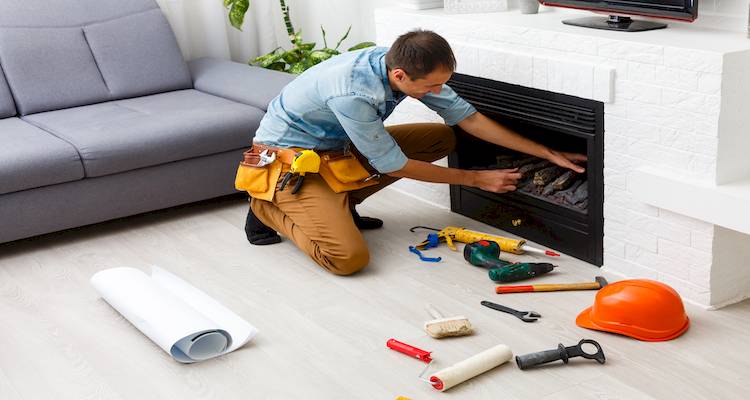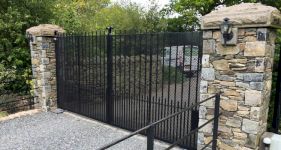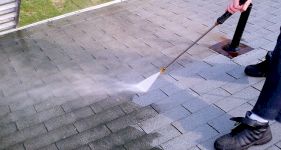Power Flush Cost
- The average central heating power flush costs around £400.
- Most jobs take 4 to 8 hours to complete.
- Central heating flush costs in 2026 by system size.
- How long the job takes and what's typically involved.
- How to find a local heating engineer using MyJobQuote.
Looking to find out how much a central heating power flush costs in the UK?
You can expect the cost of a power flush to be £400 in 2026 for a 6 radiator system. However, power flushing costs are dependent on a few factors.
So, what's included in this complete guide?
In this guide, we detail the typical cost of a power flush (including material and labour prices) so that you know what to expect before getting a quote.
We also identify the signs that your central heating needs power flushing or other types of attention to keep it in good working order.
Ready to get a quote now?
Find a local heating engineer on MyJobQuote. It takes just a few minutes to submit a job, and then you'll get free, no-obligation quotes from tradespeople near you.
Want to learn more first?
Check out the full guide below!

£400
Table of Contents
How Much Does a Power Flush Cost?
What is power flushing used for?
Power flushing is designed to clean out your central heating system by removing the sludge or debris that builds up over time.
How can this help your central heating system?
A lot of boiler and central heating problems come down to poor system water (sludge, rust and debris) building up in the pipework and components.
Power flushing can help to prevent boiler breakdowns and reduce maintenance costs, while at the same time making your heating system more efficient, saving money on fuel bills.
You’ll notice radiators heat up faster and more evenly afterwards too (especially if you’ve had cold spots for ages).
However, you shouldn’t attempt to carry out a power flush yourself. If it’s done incorrectly, it can cause considerable damage.
It’s usually recommended to have the system cleaned and flushed before a new boiler goes in, so you’re not fitting a shiny new boiler onto a dirty system. Depending on the condition, that might be a chemical flush or a full power flush. Either way, the system should be refilled and treated with inhibitor afterwards.
Power Flush vs Chemical Flush
A power flush and a chemical flush both clean a central heating system, but they are suited to different levels of contamination.
Power Flush
- ✔ A more intensive clean that uses a specialist machine to move water and cleaning chemicals through the heating system at high flow rates.
- ✔ Designed to shift built-up sludge and debris from pipework and radiators.
- ✖ Usually takes longer and costs more than a chemical flush.
Chemical Flush
- ✔ A gentler clean where the cleaning chemical is added to the system and circulated during normal operation.
- ✔ Often suitable for preventative maintenance and heating systems in generally good condition.
- ✖ May not be effective if sludge build-up is heavy or radiators have ongoing cold spots.
If sludge build-up is heavy or radiators continue to have cold spots, a power flush may be the better option. For heating systems in generally good condition, a chemical flush is often sufficient.
Early Signs That You May Need a Power Flush
A few early signs your system might benefit from a power flush include:
- Cold spots on radiators
- Noisy radiators or boiler pumps
- Slow heating radiators
However, it's good to note that these problems can also be caused by air in the system. But if you bleed a radiator and rusty brown (or near-black) water comes out, that’s a strong sign there’s corrosion and sludge in there. And it’s a good idea to get an engineer to check if a power flush (or another clean) is the right fix.
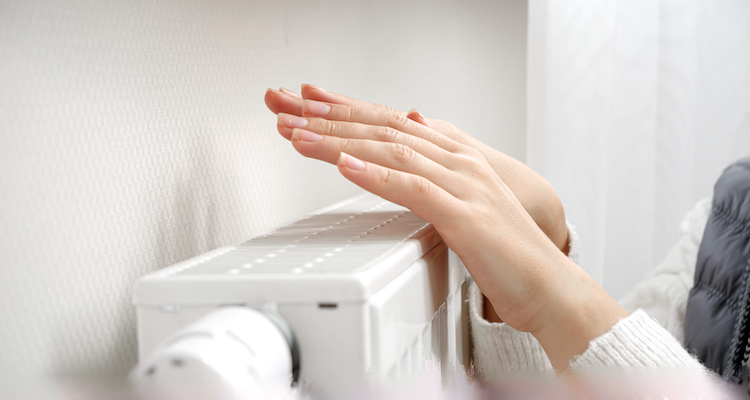
MyJobQuote makes the process of finding tradespeople simple and easy.
Just create a job, tell us what you need, and then wait for tradespeople to get in touch with free, no-obligation quotes.
How do I know if a power flush for my central heating is really needed?
Central Heating Flush Cost
So, how much is a power flush?
Let's take a look at the cost of a power flush for a heating system with a different number of radiators in the house.
For reference, a 3-bed semi-detached house typically has between 8 and 10 radiators, and a 4-bed detached house usually has between 10 and 15 radiators.
| Job Description | Total Estimated Cost |
|---|---|
| Power flush 6 radiator system | £400 |
| Power flush 8 radiator system | £470 |
| Power flush 10 radiator system | £520 |
| Power flush 12 radiator system | £550 |
| Power flush 15 radiator system | £665 |
| Power flush 20 radiator system | £870 |
Do most heating engineers perform a power flush per standard when installing new boilers?
Power Flush Labour Costs
To give you a better understanding of the costs involved in a power flush, here's what you can expect to pay for labour, as well as the expected job duration:
| Job Description | Duration | Labour Cost |
|---|---|---|
| Power flush 6 radiator system | 3 – 4 hours | £300 |
| Power flush 8 radiator system | 4 hours | £360 |
| Power flush 10 radiator system | 4 – 5 hours | £400 |
| Power flush 12 radiator system | 5 hours | £420 |
| Power flush 15 radiator system | 6 – 7 hours | £520 |
| Power flush 20 radiator system | 8 – 9 hours | £700 |
Power Flush Supply Costs
Lastly, here are the supply costs involved with power flushing your system:
| Job Description | Material Cost |
|---|---|
| Power flush 6 radiator system | £100 |
| Power flush 8 radiator system | £110 |
| Power flush 10 radiator system | £120 |
| Power flush 12 radiator system | £130 |
| Power flush 15 radiator system | £145 |
| Power flush 20 radiator system | £170 |
Additional Power Flush Costs
With a heating engineer already booked in, it makes sense to maximise their services to take advantage of any minimum call-out fees.
Here are some jobs and add-ons you can consider getting done at the same time, depending on your needs:
If You Want To Optimise Your Heating's Lifespan
Boiler Service Costs
A great job to do in tandem with a central heating flush is a boiler service.
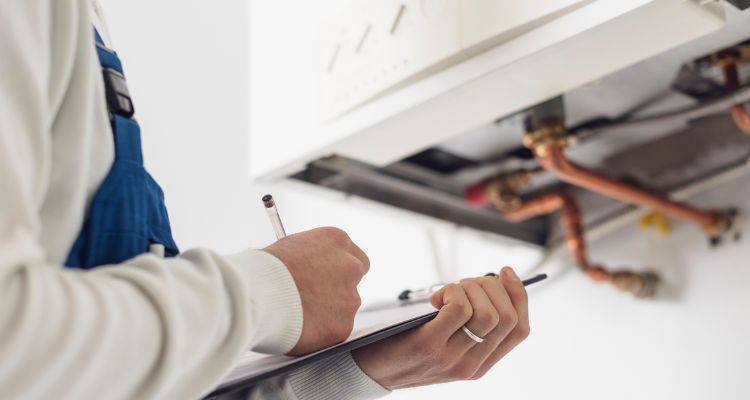
Servicing your boiler will ensure it runs efficiently and correctly. Once your power flush is done, giving your boiler a fresh bill of health will mean it lasts longer without needing major maintenance over the years, other than regular servicing.
Boiler service costs are an average of £100 in the UK.
Radiator Bleeding Costs
Once your power flush has been completed, your heating engineer will need to bleed your radiators to eliminate any built-up air in your system.
Radiator bleeding costs £100, and will make sure all air has been removed to ensure your heating circulates correctly.
If You Want To Optimise Your Home's Energy Efficiency
Smart Thermostat Installation Costs
Adding a smart thermostat to automate your home's heating schedule can boost energy efficiency while reducing energy bills.
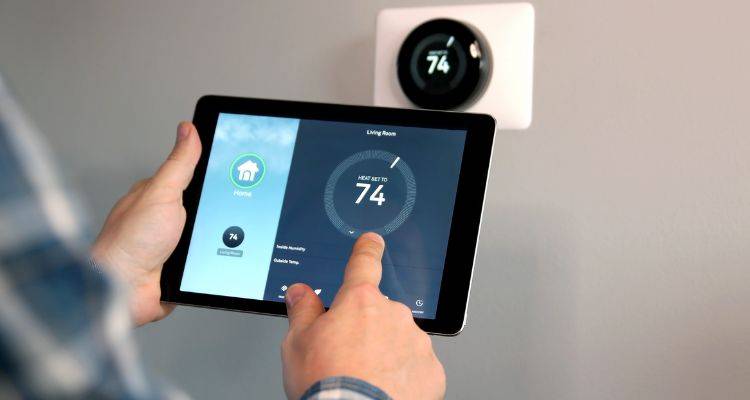
Smart thermostat installation costs start at around £265, and once fitted, you'll be able to control your home's heating from your smart devices, even when you're not in the house.
Other Work That May Be Recommended
Once your system’s been power flushed, fitting a magnetic filter (if you don’t already have one) helps catch future rust and debris before it causes trouble, which is a big help when it comes to protecting the boiler. Supply and installation is usually priced separately.
Is the build-up in the system really bad? A power flush can help, but it won’t fix every problem on its own. In some cases, a tradesperson may recommend extra steps — like targeted chemical treatment, manually clearing a problem radiator, or swapping out parts that are past saving.
Repairs and Small Replacements That Can Add to the Cost
- Replacing radiator valves (such as thermostatic radiator valves (TRVs) or lockshield valves) if they’re seized, leaking, or not controlling heat correctly.
- Fixing leaks at valves, joints, or older radiators if problems show up during or after the power flush.
- Clearing a single problem radiator if one unit is badly blocked and needs additional work beyond the standard flush.
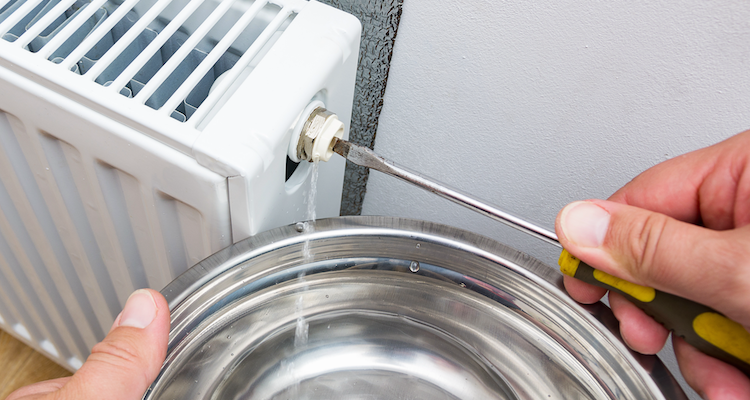
Timing and Access Factors
- Weekend or out-of-hours appointments may have an additional cost compared to weekday slots.
- Parking, travel, or access issues can affect the final quote in some areas, especially if the heating engineer needs extra time to set up and move equipment.
What's Involved in Power Flushing Work?
Power flushing is essentially a deep clean for your heating system. It’s done with a specialist machine that pushes water (and cleaner) through the pipes and radiators to dislodge sludge and debris.
Over time, the inside of steel radiators can corrode. That rust mixes with the system water, turns it dark, and settles in the bottom of radiators and pipework. That’s when you start getting poor flow, cold spots, and noisy heating.
Here’s what the process looks like when a heating engineer does it:
Before the Job Starts
- Quick system checks — The engineer will look for cold spots, noisy areas, and poor circulation, and take a brief look at the system water to see how dirty it is.
- Set-up and protection — Floors get covered, valves are set up for good flow, and the flushing machine is connected in the right place.
During the Job
- Cleaning flush — A cleaning chemical is run through the system, in both directions, to help break down the sludge.
- Radiator-by-radiator flush — Each radiator is flushed in turn (starting with the coldest), sometimes with gentle tapping to loosen stubborn build-up.
Radiators usually remain in place during a power flush. In rare cases, a tradesperson may remove a radiator temporarily if it is heavily blocked and cannot be cleared while connected.
After the Job
- Rinse, refill, and inhibitor — Once the water runs clear, the system is refilled, and a corrosion inhibitor is added to slow down future sludge build-up.
- Final checks — If needed, they’ll bleed radiators, check for leaks, and make sure everything’s heating evenly again.
My radiator is cold on the top half. I've tried turning it on and off a few times, but the problem persists. What else could I try to fix the problem?
Signs You Need a Power Flush
Central heating problems don’t always show up as a full breakdown. Most of the time, it’s little clues that keep cropping up. For instance, slow radiators, patchy heat, and odd noises.
Here are some of the most common signs that sludge could be causing trouble:
- Cold at the bottom of a radiator — The top warms up, but the lower half stays cool. That’s sludge settling in the bottom and restricting flow.
- Radiators still poor after bleeding — If you’ve bled them in the right way and they’re still patchy or slow, it’s more likely muck in the system than trapped air.
- Knocking, ticking, or gurgling — Noisy pipes and radiators can mean water isn’t moving freely because debris is getting in the way.
- Some rooms never feel warm — The heating’s on, the thermostat is set, but one or two radiators always lag behind. That points to poor circulation.
- Dirty water when you bleed a radiator — Rusty brown or near-black water is a strong sign there’s corrosion and sludge in the system.
Not sure what’s causing the issue?
Cold spots, slow-heating radiators, and strange noises can be caused by a number of issues, such as sludge, trapped air, or faulty valves. In some cases, a full power flush may not be the answer and it could be something much simpler and cheaper.
You can use MyJobQuote to find a local heating engineer who can assess the system, explain what might be causing the issue, and advise whether a power flush is required.
I have a gas combi boiler. One of the radiators is heating at the top and lukewarm at the bottom, with the pipe below the lockshield valve also lukewarm. What's the potential cause?
Checklist: Hiring a Heating Engineer for a Power Flush
Power flushing isn’t a DIY-friendly job. It needs specialist kit, and if it’s done wrong, you can stir up more sludge, trigger leaks, or cause bigger issues.
So, if you’re getting quotes, here are a few quick things to check before you hire a heating engineer:
- Do they do power flushes regularly? Ask how often they carry them out, and what sort of systems they work on (older pipework, combi boilers, sealed systems, etc.).
- Can they explain what they think the issue is? A good engineer will talk you through whether it sounds like sludge, air, a stuck valve, or a pump problem before jumping straight to “flush”.
- Are they the right person for your system? If they’re working on a gas boiler, they should be Gas Safe registered. For other setups, they still need to be properly qualified for heating work.
- What’s actually included in the quote? Check it covers the cleaner or chemicals, the flush itself, inhibitor afterwards, and final checks (not just “power flush” as a vague line item).
- Will they protect your home while they work? It can get a bit messy. It’s fair to ask about dust sheets, how they’ll avoid spills, and what they’ll do if a radiator valve starts weeping afterwards.
- Do they have public liability insurance? It’s not a legal requirement, but it’s one of those things you’ll be glad they have if something leaks mid-job.
- Do they have reviews and proof of similar work? Look for feedback from other homeowners and, ideally, photos that show they’ve done jobs like yours before.
Not sure who to go with? Use MyJobQuote to find a local heating engineer. You’ll get free, no-obligation quotes from tradespeople near you.
FAQs
How Often Should I Power Flush My Central Heating System?
There isn’t a set “you must do it every X years” rule. A lot of engineers say roughly every 5–6 years, but, in truth, it depends on your system and how it’s behaving. If your radiators heat up evenly, you’re not getting cold spots, and it’s not making odd banging or gurgling noises, you might not need one yet. If it’s starting to feel sluggish, that’s when it’s worth looking into.
I’ve Had a Power Flush Before, but Sludge Keeps Coming Back. Why?
It’s probably because oxygen is getting into the system. That can happen if there’s a tiny leak, you’re topping pressure up a lot, or the system isn’t sealed correctly. Oxygen means faster corrosion, and that’s what creates sludge over time. Older systems can be more prone to it as well. A magnetic filter helps (it catches the rust bits before they cause trouble), and making sure inhibitor is in the system makes a big difference as well.
Can a Power Flush Damage Pipes or Cause Leaks?
It’s very unlikely that a power flush will cause any damage to pipes or radiators that are in good condition. When performed correctly, it uses high water flow at low pressure (usually around 2 bar) to remove sludge and corrosion from the heating system, rather than forcing water through and putting strain on the pipework.
However, a power flush can occasionally expose pre-existing issues in older or heavily corroded systems. Removing built-up sludge and rust may reveal leaks that were already developing. This isn’t a case of the power flush causing new damage — it simply highlights problems that would likely have surfaced later anyway. With a heating engineer already on site, any issues can usually be assessed and repaired straight away.
How Long Does a Power Flush Take?
A power flush usually takes 4 to 8 hours and is normally completed within 1 working day. A mid-sized heating system typically takes around 5 to 6 hours.
The work can be longer for larger systems with more radiators, or where sludge buildup is bad. Older or more complex pipework can also take additional time to clean properly.
Do I Need a Power Flush With a New Boiler?
You do not always need a power flush when you get a boiler. If your heating system is relatively new and the water is clean, you might not need to do a power flush.
Many boiler manufacturers recommend cleaning the system before installing a new boiler. This is because putting a boiler in a dirty system can cause problems and void the warranty. If the water in your system looks black or rusty, or if your system is old, you have cold spots, or you have noise issues with your radiators, you should probably get a power flush. If your system is new and has little buildup, you might just need a chemical flush.
Is a Power Flush Worth It?
Getting a power flush is usually a good idea if you have sludge or corrosion in your heating system. If you have problems like cold spots on your radiators, noisy pipes, or uneven heating, a power flush can be worth it.
A power flush can remove built-up debris from your system, improving how your heating works and uses energy, and reducing strain on your boiler, which can help prevent problems in the future.
Will My Engineer Add an Inhibitor After a Power Flush?
They should, yes. Once it’s been cleaned and refilled, inhibitor is what helps protect the inside of the system and slow down corrosion. If it’s not added, it’s basically like cleaning your car and then leaving it out in the rain with no wax on. It’s a small step. But it really helps stop sludge building up again.
Do Radiators Have to be Removed for a Power Flush?
Radiators do not usually need to be physically removed for a power flush. The only time an engineer removes a radiator is when there’s a severe blockage that won’t budge with the power flush machine. They’ll take it off, flush it with a hose, then reconnect it once clear.




